Timeout for faith: A look into BYU athletes’ mission deferment
In the stadiums, fields, and pools where Brigham Young University’s athletes showcase their physical prowess, there exists a unique and compelling narrative that extends far beyond the boundaries of sport. Hundreds of BYU athletes have voluntarily served missions for the Church of Jesus Christ of Latter Day Saints.
Stepping away from the spotlight, these athletes have chosen to hit pause on their athletic careers to answer a higher calling.
Becoming a D1 athlete is no easy feat. It requires years of training, hard work, and dedication. This leaves many people wondering: Why do they give up the sport they love for 18-24 months?
Several BYU athletes who served missions delve into their motivations, the profound life lessons gained during their service, the challenges they faced upon their return, and the invaluable advice they offer to fellow athletes contemplating a similar path.
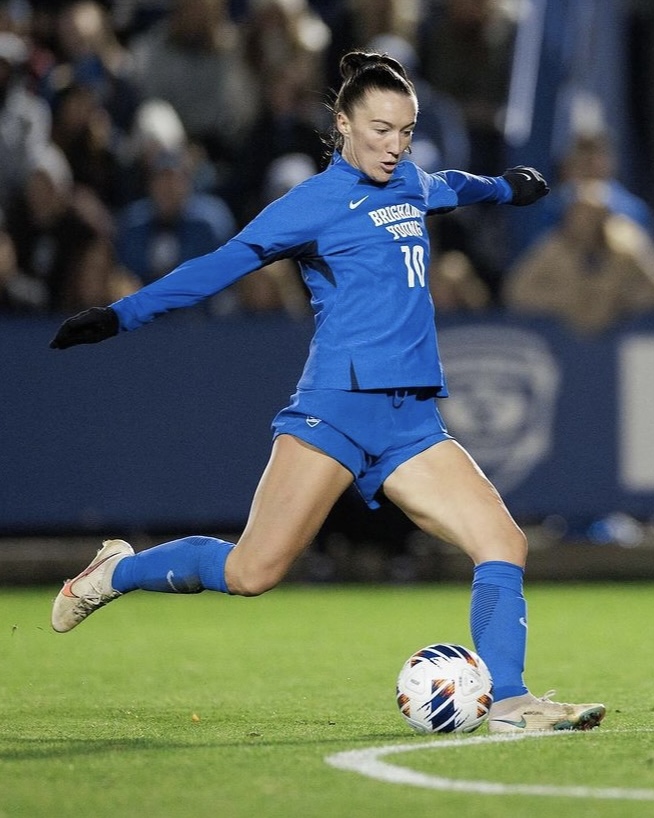

Olivia Katoa, a midfielder on the women’s soccer team until 2023, joined the roster in 2018. After receiving a strong feeling to leave after her freshman year and serve as a missionary for 18 months, Katoa faithfully acted on the prompting.
Knowing that it was a huge risk, Katoa trusted that if she put God first, everything would work out. A Bible verse in Matthew 6:33 was her motivation: “But seek ye first the kingdom of God, and his righteousness; and all these things shall be added unto you.”
“We do have a busy schedule with soccer. But I think just being able to do everything that I can to make sure that I’m putting God first and then just knowing that the other things will align how they’re supposed to. I feel like it’s not as much of a balancing act…the gospel takes complete priority,” Katoa said. “I am a daughter of God way before I’m a soccer player.”
James Corrigan, a BYU track athlete, had very similar things to say about his identity as a member of the Church of Jesus Christ of Latter Day Saints.
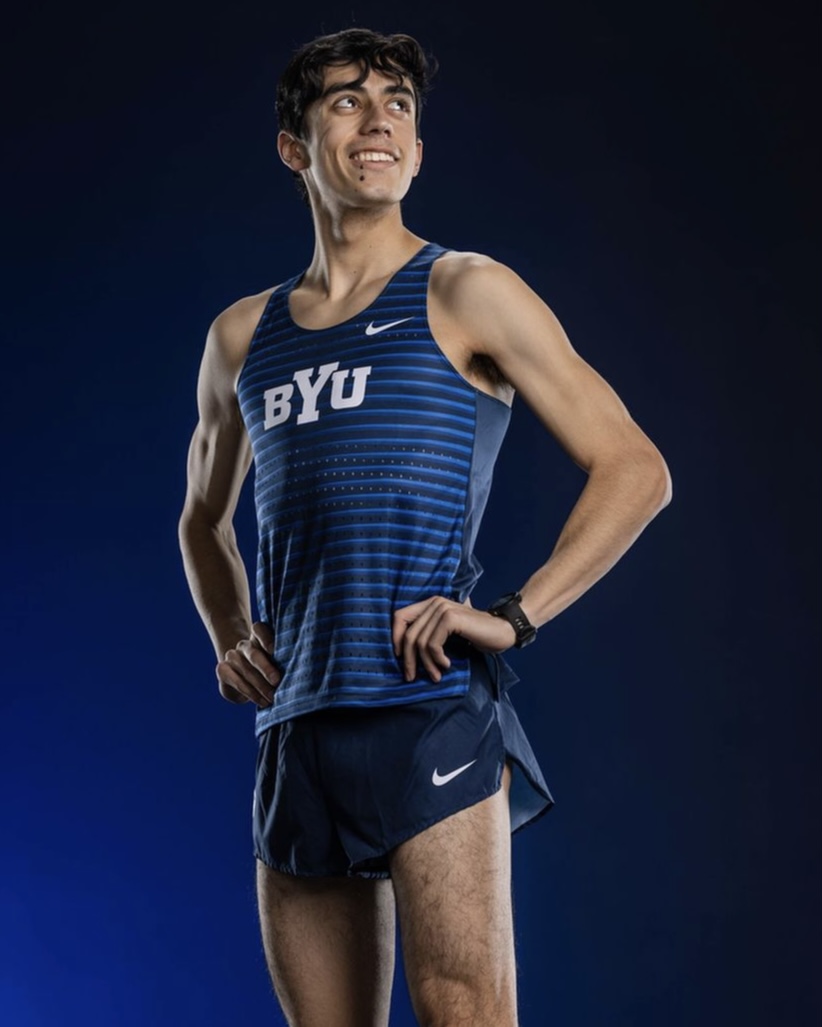
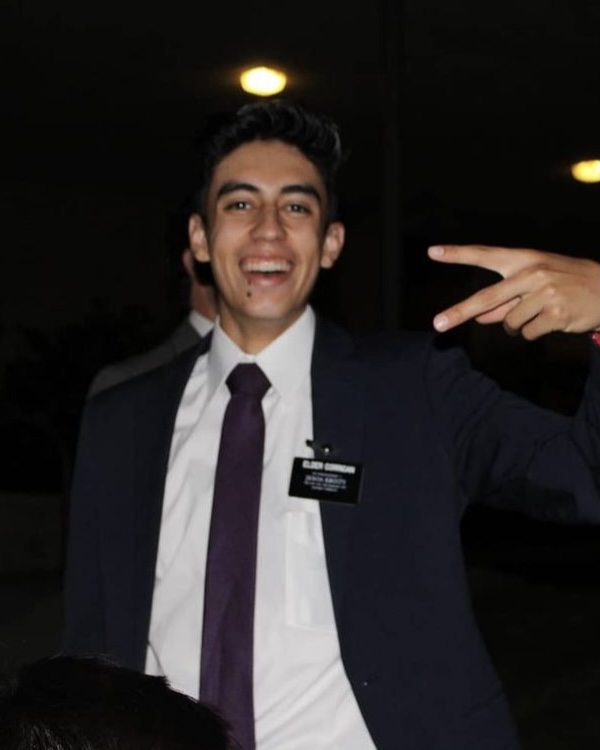
“Running is a huge label for me…but it’s not really my identity because my identity is a child of God,” James said.
Before Corrigan left for his mission, there were several deaths in his family that made the gospel even more applicable in his life. He saw how different members of his extended family, members of the church and non-members, reacted to death.
His knowledge of God’s plan helped him to cope with his loss, and he realized that he needed to share this hope with other families who might not have it.
“It really made my testimony come alive, realizing that things that I did my entire life like reading scriptures, going to church, saying prayers, those things made a huge impact on the way that we responded…and I realized that I so badly wanted more families to be able to see that,” Corrigan said.
A common belief among the athletes: Putting trust in God and having faith in Him is the key.
Tahis Ibáñez, a BYU swimmer from Venezuela, did just that.
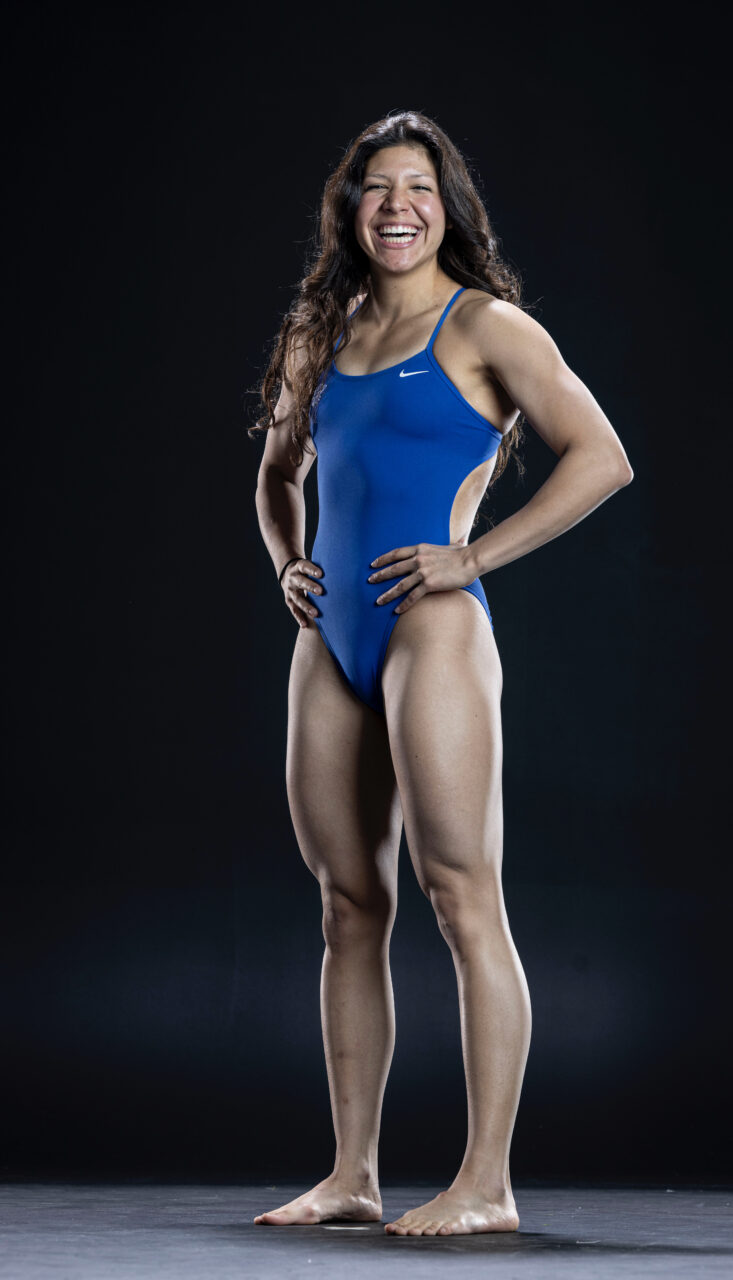
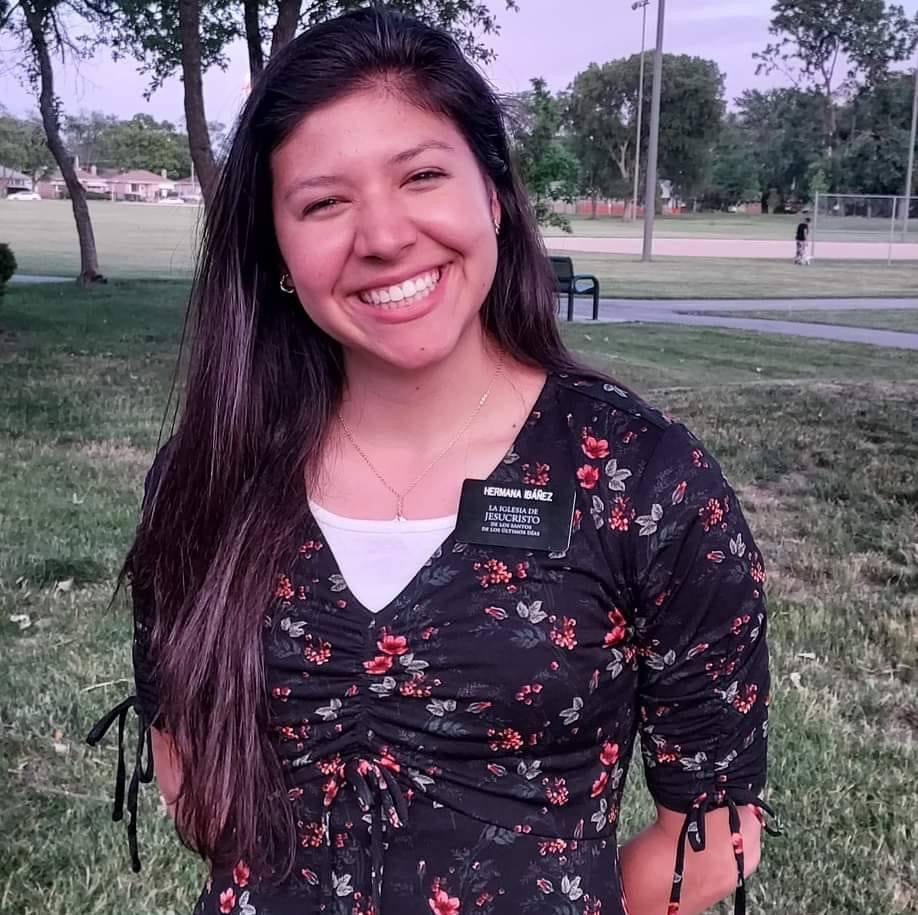
“Something that just always came to mind before the mission, during the mission, and after, is that God knows your heart and he knows your righteous desires,” Ibáñez said. From the beginning just he knew and still knows how much I love this sport, and so I never doubted that he would help me do what I love doing.”
Being students at the church-affiliated university, there are lots of support systems in place that allow the athletes to defer their enrollment. But that does not make the transition back into sports easy. While you are encouraged to stay in shape on your mission, Katya Hulse, also a swimmer and a friend of Tahis’, shared the difficulties of not being able to get into a pool for 18 months.
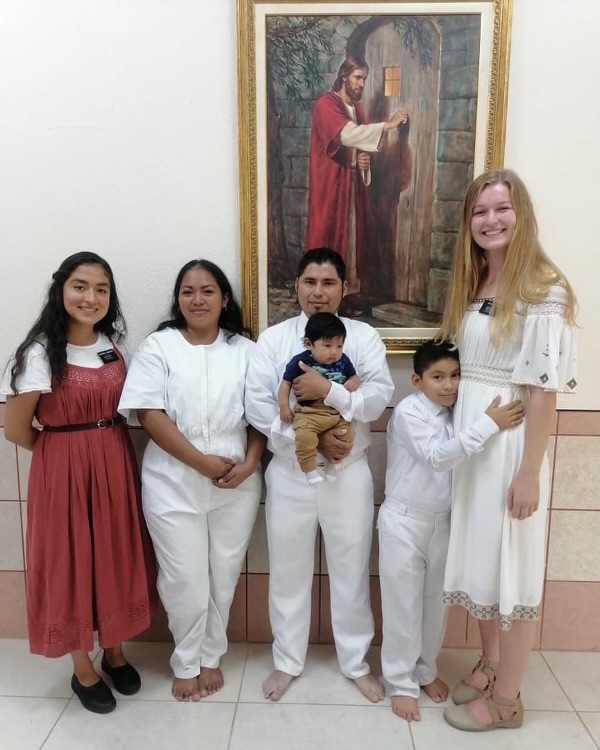
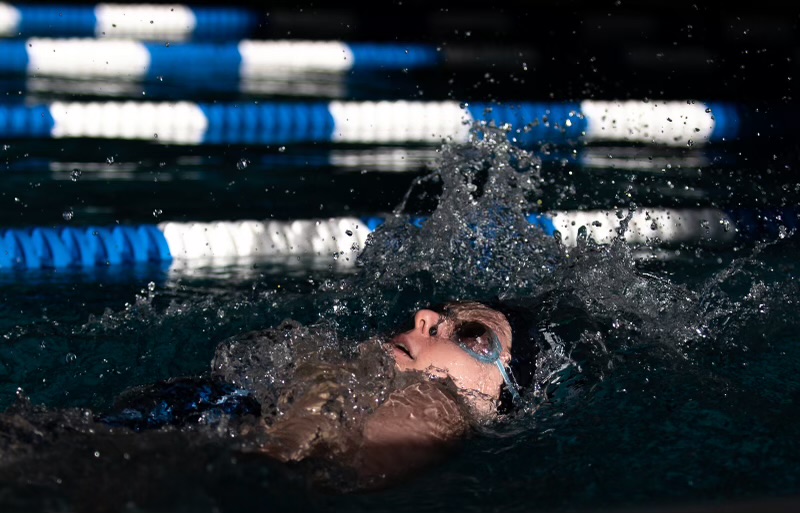
“I thought, how am I going to leave? Especially because you can’t swim on your mission. I feel out of shape after taking a day or two off, how am I going to take 18 months off? And so for me, it was really tricky. I was going back and forth a lot but eventually I knew that’s what I wanted to do,” Hulse said.
Hulse explained how she jogged past a beautiful 50-meter pool every day during a part of her mission. While it killed her that she could not dive in, she never once regretted being a missionary.
“There has not been a single second since being home that I’ve regretted going. Not at all. Not even while I was out. Not if I was having a hard time. Not if I was really tired. Not if I was not getting along with my companion. I loved it every single second,” Hulse said.
Ibáñez and Hulse shared that getting back into the pool after such a long break was difficult, but achievable. Shari Skabelund, swimming head coach, is used to swimmers pausing for missions and therefore was a great supporter of the girls when they returned.
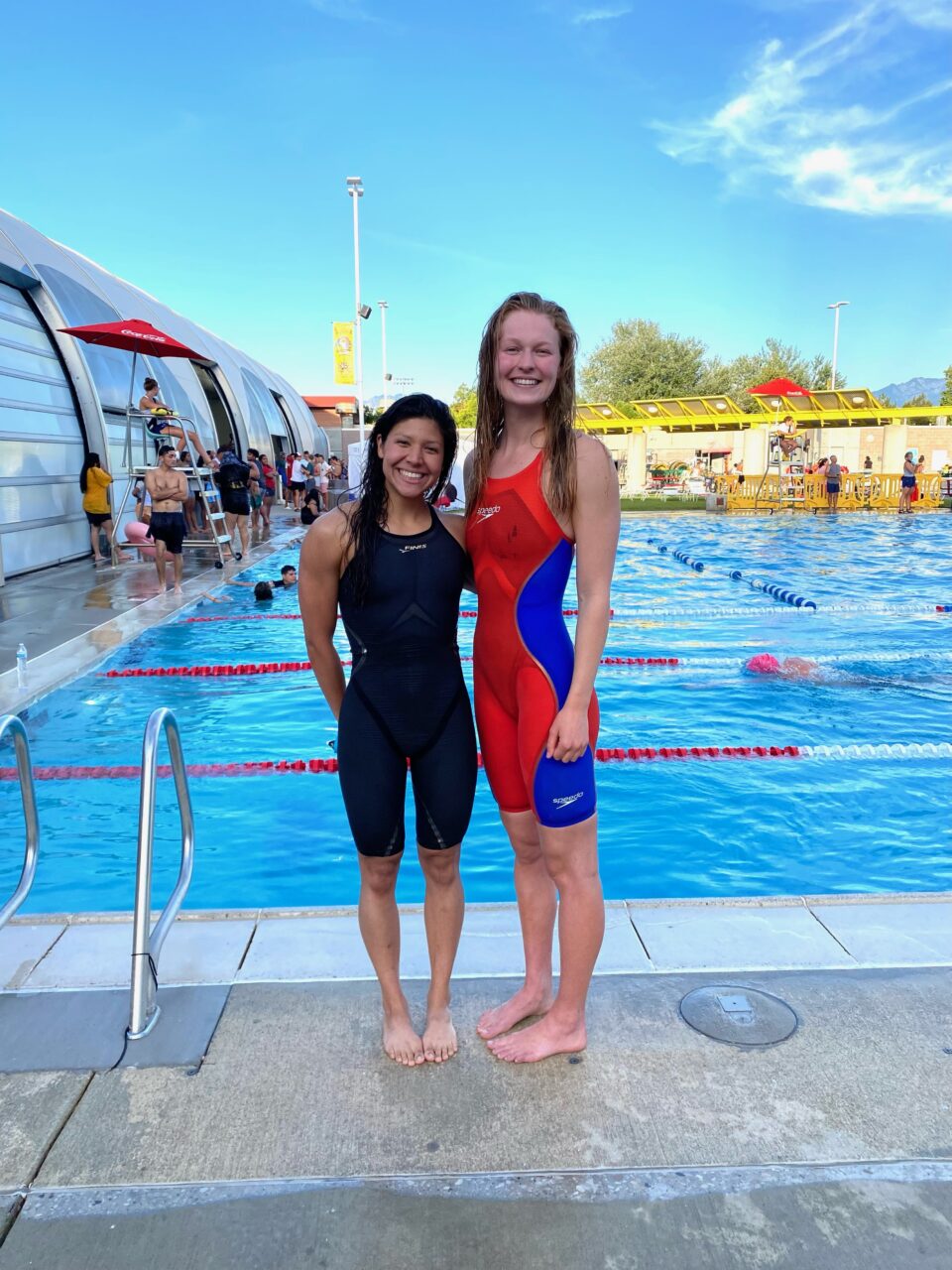
Ibáñez explained that being on the team before a mission does not guarantee you a spot when you return. “It takes a lot of hard work, dedication, and patience,” she said. “It was definitely a challenge every single day, but it was a challenge that we took with so much optimism and with so much desire to be back because it is what we love.”
For Corrigan, coming back to the track team was not an easy transition either.
“I remember having to think about every breath I took…and whether I should be breathing every three steps…I was like, how do I run again?” Corrigan said.
Corrigan shared advice for any athletes contemplating serving a mission: Blessings from God aren’t always transactional. Having the expectation of becoming ten times better as an athlete upon return is not the right mindset for going into the mission. Regardless of what happens after, he reminds returned-missionary athletes to keep their commitment to the Lord.
Katoa, Corrigan, Ibáñez, and Hulse can all agree that they have changed for the better. While leaving a sport, especially at the collegiate level, is a huge risk, they would encourage any student athlete to consider taking a pause to grow spiritually and serve others.
In an academic study examining the experiences of 10 Latter-day Saints NCAA athletes who served full-time missions, the athletes reported that post-mission they were able to better put things into perspective, have stronger perseverance, and set effective goals.
Returning to a sport post-mission isn’t easy, but the lessons learned along the way make it all worth it.

